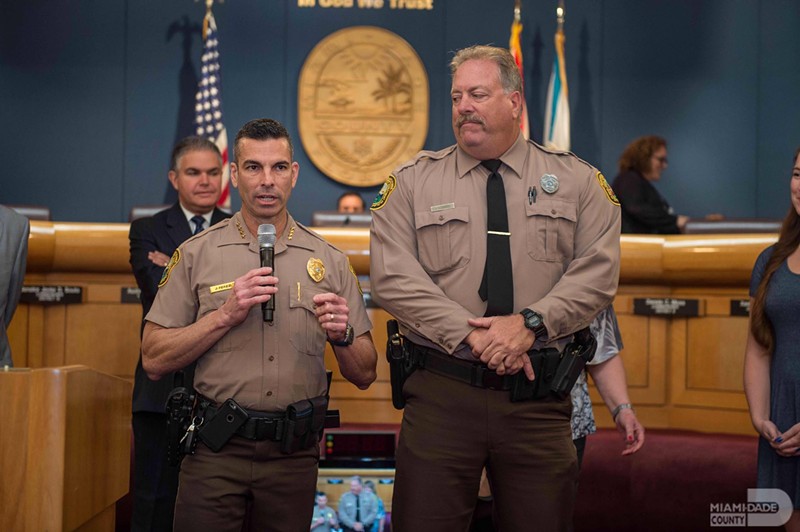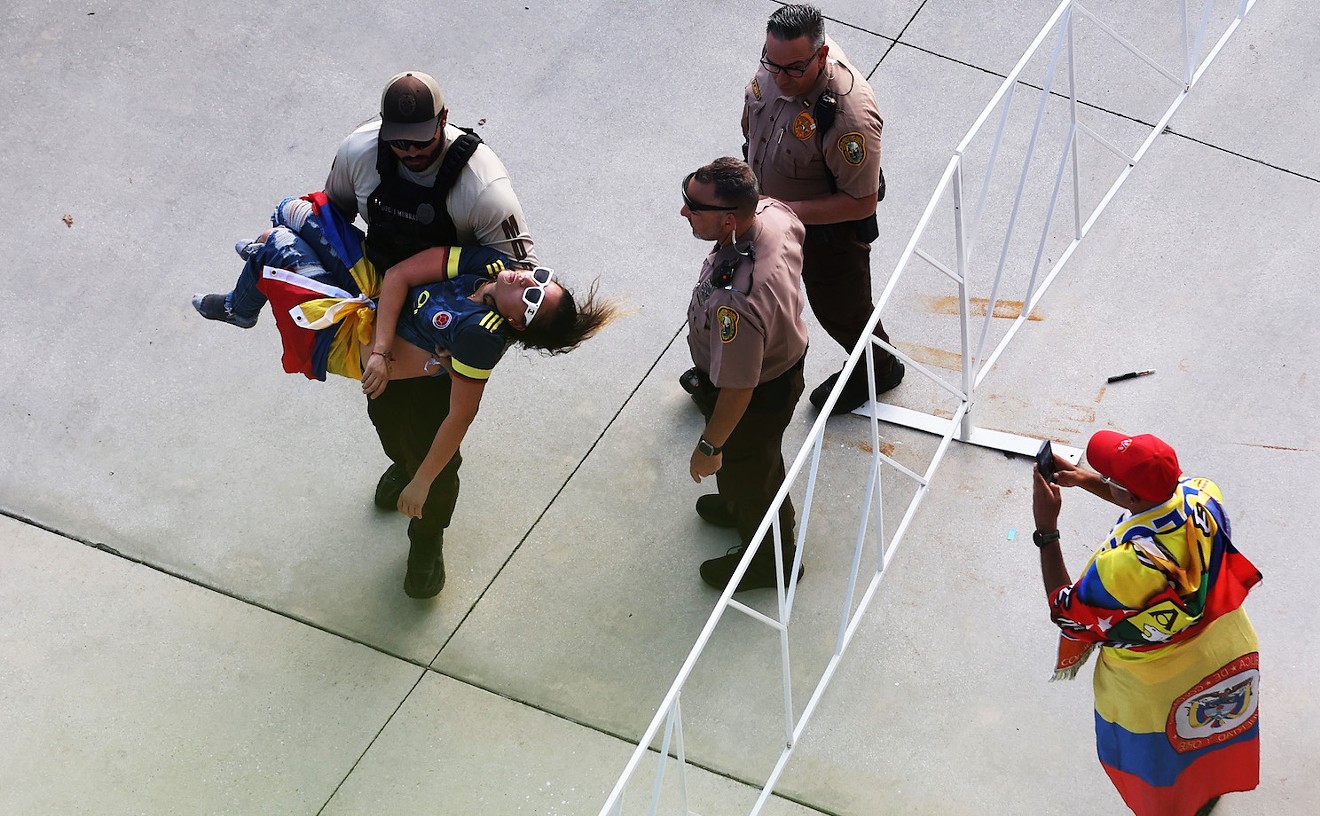Now Miami-Dade Police are quietly trying to deploy the same system. In a county document posted online Tuesday, MDPD revealed the force has applied for Department of Justice funds to begin using wide-area surveillance (WAS) tools throughout the county. In a move that echoes Baltimore's lack of disclosure to the public, Miami-Dade Mayor Carlos Gimenez has already applied for the grant — and the county is now asking commissioners to sign off on the act retroactively at its next meeting June 6.
Civil liberty groups say they have major concerns about police using such a system, especially without telling the public about it.
"It continues to be stunning that American police forces feel that they can use deeply radical and controversial surveillance systems, which raise the most profound questions about our society and its values, without telling the public that will be subject to these technologies — the public they are supposed to be serving," Jay Stanley, the ACLU's senior policy analyst, writes in a recent piece about Baltimore's use of the tool.
According to county documents, the grant would provide up to $500,000 for MDPD to test the aerial surveillance program. The funds would come from the DOJ's Bureau of Justice Assistance Technology Innovation for Public Safety Grant.
"[The system is] intended to generate leads, improve incident clearance rates, maximize convictions, and prevent crime," the report notes. MDPD would contract out with a private system operator, which would handle the "equipment, personnel, training, and technical support required." MDPD would largely just pay to access the service.
The grant request is MDPD's second controversial surveillance upgrade in less than 12 months. Earlier this year, the department authorized more than $5 million to pay for ShotSpotter, a gunshot-detecting microphone system that MDPD itself abandoned once before because it said the system didn't work very well. (More recently, the department also argued that dashboard-cameras for street cops are too expensive to bother buying.)
But though civil liberties groups say there are relatively minor concerns about ShotSpotter, the wide-area surveillance technology downright terrifies the ACLU's legal analysts, who call the program "the ultimate Big Brother 'eye in the sky.'"
One major company specializes in wide-area surveillance cameras: the Ohio firm Persistent Surveillance Systems (PSS). Police departments pay PSS a fee, and the company then continually flies a Cessna around. The plane is equipped with "megapixel cameras," which then record video of millions of innocent people in real time. The varying clips are then stitched together using artificial intelligence, and cops and analysts can then play back the footage however they want. (The weapons and aerospace company Northrop Grumman also offers its own wide-area surveillance program called "Air Claw" to police departments, but the company's planes also use PSS-designed cameras.) A company called the Harris Corporation has also developed its own WAS system called "CorvusEye."
According to Bloomberg News, the technology was developed a decade ago by Ross McNutt, an Air Force Academy graduate and MIT alumnus who founded the Air Force’s Center for Rapid Product Development. More than ten years ago, the Pentagon asked McNutt to develop a technology to catch Iraqi insurgents who'd been planting car bombs. In 2006, McNutt revealed "Angel Fire," which worked almost exactly as his wide-area surveillance technology does now.
McNutt's planes are now being used to keep 24-hour watch on American citizens:
Stanley, the ACLU's senior policy analyst, for the past four years has warned against the proliferation of WAS systems:
I have been warning against this technology since early 2013, and wrote about it again a year later after Persistent Surveillance president Ross McNutt gave me a presentation on it. Then, in 2015, we learned that Cessna aircraft were circling over Baltimore in the wake of protests following the police killing of Freddie Gray, and immediately feared that this kind of wide-area surveillance was involved. Further reporting revealed that these flights, which were also spotted over many other American communities, were being run by the FBI, which told the AP that its fleet was “not equipped, designed or used for bulk collection activities or mass surveillance.” At the time, we were relieved to hear that.According to Bloomberg, the technology was also controversially tested in Los Angeles (over the majority-black neighborhood of Compton) and Dayton, Ohio, where black residents complained that the footage would "target" them. Even more peculiar, local taxpayers didn't foot the bill for Baltimore's system; instead, a former Enron trader from Texas paid for the whole thing. Elsewhere, McNutt and PSS regularly make marketing pitches to police departments around the country.
Now we learn that wide-area surveillance is being conducted over Baltimore. And despite all the public questioning and statements of concern by us and others, and our freedom-of-information requests, and the extensive press coverage the FBI’s Baltimore flights received, the Baltimore police did not see fit to ask the public's permission to use this startling new technology on the city’s population. Instead, it arrogated unto itself in secret the decision to deploy this technology.
As far as privacy is concerned, the ACLU warned last year that PSS's data-retention policies were unclear and that it was unknown how long the company held onto footage it records. Unlike stationary, publicly mounted security cameras, which are themselves the subject of controversy, a wide-area surveillance system can track a person's every move across a whole city in real time.
"Make no mistake," the ACLU warns, "this technology is a big leap toward an unknown surveillance future."












